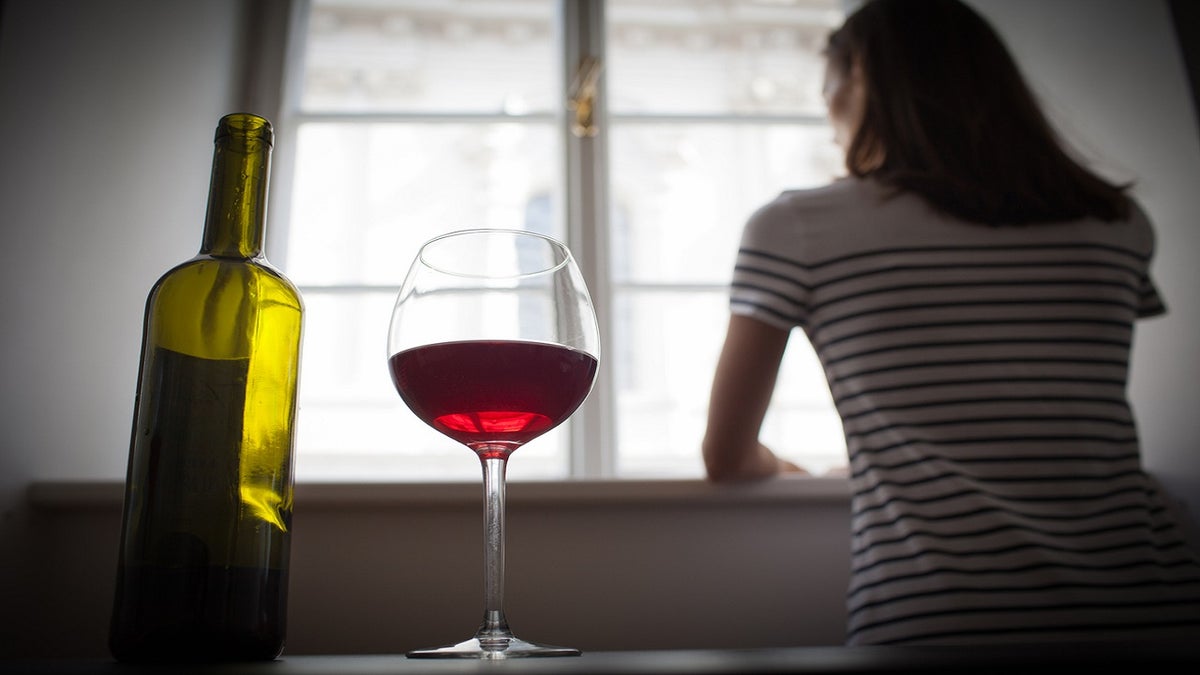Fox News Flash top headlines for June 11
Fox News Flash top headlines are here. Check out what's clicking on Foxnews.com.
While Americans have shifted to heavier alcohol use during the pandemic, studies indicate a concerning pattern among women as they drank to relieve stress, boredom and the pain from social isolation.
Dr. George F. Koob, director of the National Institute on Alcohol Abuse and Alcoholism, told Fox News in an interview that women are generally more sensitive to stress than men.
"Women are more susceptible to major depressive disorder and anxiety disorder, about two-fold over men," Koob said. "They respond to stress differently and one of our concerns is that, it may not be surprising that women are drinking more to relieve stress given these increases in stress in our society, some of which are social, some of which are pandemic-related."
CORONAVIRUS LOCKDOWNS SAW RISE IN ALCOHOL USE, STUDY FINDS
One study published in JAMA Network last fall found an overall 14% increase in frequency of drinking among both sexes compared to 2019, with women reporting a 17% uptick in the number of drinking days, and a significant increase (41%) in the number of heavy drinking days, translating to an additional drinking day each month for one in five women.

Women are generally more sensitive to stress than men, which resulted in an increase in alcohol use amid the pandemic, an expert said. (iStock)
Alcohol interacts with the pandemic in four ways, Koob said. First, alcohol misuse is associated with a higher incidence of acute respiratory distress syndrome (ARDS), a type of respiratory failure often seen in patients with severe COVID-19, leaving some experts concerned over the possibility that alcohol misuse can contribute to some pathology associated with COVID-19.
Next, alcohol consumption and its associated disinhibition can sometimes lead to relaxed physical distancing, or getting too close to another person and potentially facilitating transmission of viral infection, Koob said. Another factor involves social isolation, a stressor for many that can cascade to alcohol misuse. Fourth, those vulnerable to relapse were more likely to consume alcohol amid the pandemic, compounded by barriers to treatment.
ANY AMOUNT OF ALCOHOL CAN HARM THE BRAIN, STUDY SUGGESTS
"There is a subgroup of individuals, [where] once they have engaged in alcohol for social pleasurable reasons, then find it useful, at least temporarily to blot out the memories of the emotional pain and stress and so they start using alcohol in a self-medicating kind of way," Koob said.
"That’s a dangerous path to take because it backfires," Koob added.
What’s more, the gap in alcohol use between men and women has been narrowing over the last 50 years, Koob said, owing to the blurring line, in part, to women’s boosted integration in the workplace pre-pandemic.
Women also react differently to alcohol than men; drinking the same amount of alcohol for women, even of same weight, will convey a higher blood alcohol level simply due to differences in body water distribution, meaning it takes fewer drinks to reach the same blood alcohol levels. Women tend to have less water per kilogram, Koob explained.
"The main thing is to evaluate your relationship with alcohol," Koob advised. "If you find yourself drinking to relieve stress, you may want to think hard about whether you want that second drink. One drink conveys a certain amount of pleasurable effect, but there’s a rapid tolerance to that effect with alcohol. So the second drink, and the third drink, and the fourth drink don't convey the same pleasurable effect.
"Think of the first beer at a picnic and how that felt so good and tasted so good, and then think of the fifth beer six hours later, that is what we call ‘acute tolerance.’"
Some of the ongoing studies involving alcohol are looking at the relationship between viral infection and lung function, while other studies are examining potential differences in the type of beverages consumed, among other trends. Koob is hopeful for additional data by fall, as the pandemic continues to evolve.


